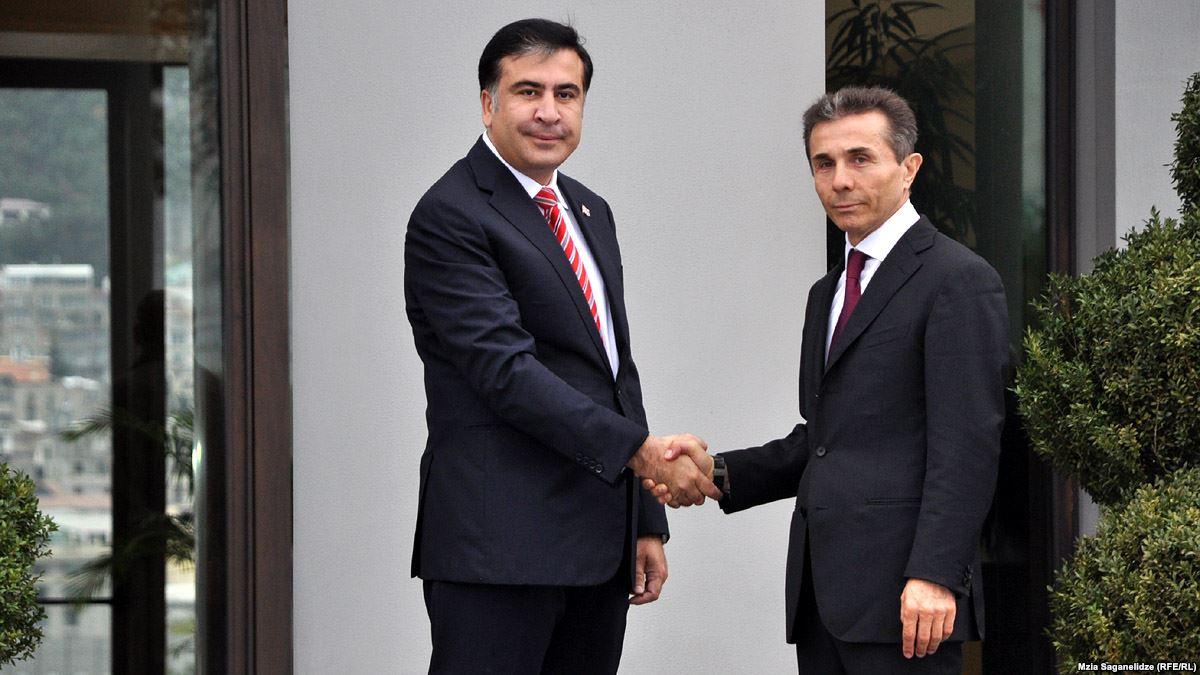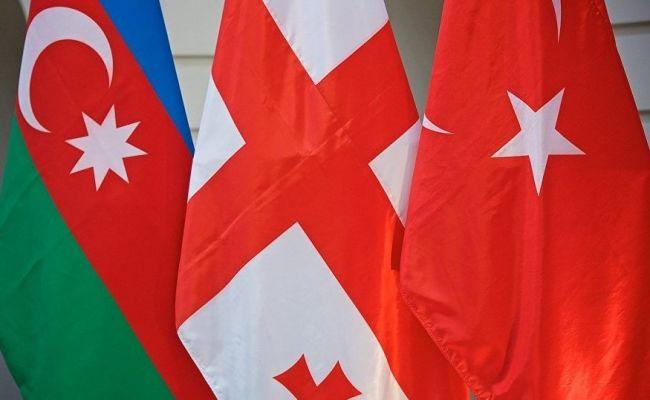Gas price hike didn't affect Georgia due to Azerbaijan's goodwill Caliber.Az interview with Beso Kurtanidze
Georgian analyst Beso Kurtanidze, editor of the "Anti-Fake" project of Georgian public channel 1tv answers Caliber.Az's questions about the disagreements dividing the Georgian society into opposing trends, parties and groups.
- How polarized is the Georgian society today?
- It is quite polarized. Citizens' opinions on many aspects of domestic and foreign policy differ, sometimes drastically. I will single out two main aspects of the lack of agreement in the society: confrontation between the authorities and the opposition for leadership, as well as divergence of views on the spiritual values of the nation.
In both cases, the controversy is fomented by the media. It is rare nowadays for the media to cover events objectively and impartially. Some media outlets are the mouthpiece of the open opposition, while others are the mouthpieces of the government. And the orientation of the media depends on the political views of their sponsors and owners. Journalists debate on political shows with radical politicians or celebrities, and sometimes it ends in a scuffle on air, which also contributes to polarization. It has even happened that unwanted journalists have been beaten in the street. Last summer, participants in the March of Dignity beat and insulted 42 media representatives at once. A few days later an unprecedented story took place: Georgian journalists burst into the session hall of the Parliament of Georgia.
A certain part of society does not understand at all what the media are trying to achieve, and what kind of powerlessness they are talking about. This, too, becomes a subject of public discussion.
The political confrontation between the authorities and the opposition is taking place all over the world, but in civilized countries only elections determine who governs a country. It is different in Georgia - elections do not always turn out to be fair and satisfy everyone. Today, our opposition insists on changing the government, and is going to do it in a revolutionary way. A revolutionary committee is even scheduled to be created in a few days with the aim of changing the government in the next six months.
This, of course, is not what everyone wants. Literally, in recent days the relations between the government and the opposition have become even more acute, because unlike Ukraine and Moldova, Georgia is unlikely to get the status of a candidate for membership in the European Union. For which the opposition accuses the government, believing that it is pursuing a pro-Russian course. Opponents of the government claim that the government deliberately arrested the director of an opposition party's TV channel for his statement that Georgia will not be an EU candidate. And opponents of the government declared ex-President Mikheil Saakashvili arrested for illegally crossing the border as a political prisoner.
The second serious cause of discord in society is the attitude towards spiritual values. A few days ago, a liberal politician said that King Heraclius II was a traitor, because he signed the Treaty of St. George on the transition of Georgia under Russian patronage. Meanwhile, Heraclius II is one of the kings held in high esteem by the Georgians. His qualities as a ruler were also appreciated in Azerbaijan - the hero of the Azerbaijani people Ibrahim Khalil Khan, who ruled the Khanate of Karabakh, entered into an alliance with him. Heraclius II fought many successful battles. He also severely punished a person who insulted a Muslim because of his faith - the king ordered him to stick a needle in his tongue so that he would not dare to speak ill of Muslims anymore.
Another reason for the current public controversy is the Orthodox Church's attitude toward the rights of sexual minorities.

- How do you assess the Ivanishvili and Saakashvili factor in what is happening in Georgia?
- Ivanishvili and Saakashvili are prominent political leaders in Georgia. In 2012, the society was divided into its supporters and opponents, and the polemics continue to this day. If Saakashvili's United National Movement (UNM)-led opposition wins, his adherents will take revenge on Ivanishvili and his supporters for taking power away from them and persecuting them. No one knows what form of revenge will be used. Anything from arresting the activists, confiscating their property, to expelling them from the country is permissible. This is why the dispute between the two camps is so bitter.
So society is divided along these lines as well. One side accuses the government of being loyal to the previous ruling party, while the opposition speaks of political persecution. This is the reality: the previous ruling party is now the main opposition party. This is why everyone constantly recalls the achievements and failures of the former ruling UNM, comparing it with the current ruling party. No other leader has appeared so far who would oppose both Ivanishvili and Saakashvili at once. In my opinion, the situation is already just comical: politicians who were against the UNM rule are now fighting together with the UNM for democratic reforms and human rights. This is like the devil quoting holy books to deceive people's souls. In this case, voters.
- And yet, what is the attitude of Georgian society towards the possibility of the country joining NATO and the EU?
- NATO and the EU will never be close to Georgia. After the outbreak of the war in Ukraine, its authorities have repeatedly stated that it is now time for Georgia to start fighting to liberate its occupied territories. Secretary of the Security Council of Ukraine Danilov, Presidential Advisor Arestovich and others have stated this. However, the government of Georgia does not share this view, which has been repeatedly stated by the prime minister.
At the same time, the leader of the separatists Bibilov in the Tskhinvali region called a "referendum" on the joining of South Ossetia to Russia. It should have been held on July 17 and would have been clearly won by an overwhelming majority of supporters of unification with Russia. However, the new "president" of the South Ossetian separatists, Gagloev, postponed the vote indefinitely, saying that Russia did not support the "referendum" at this stage because of the war in Ukraine.
He even specified that if Moscow wanted to hold it, it would find the money to hold it. We are talking about half a million dollars. It turns out that the "referendum" did not take place because of the position of Russia and not because of the separatist government of South Ossetia or the will of the people living there. But that's not how Russia behaves in Ukraine. The quasi-states of the "LPR" and "DPR" are bound to be annexed to the Russian Federation through such referendums.
In Georgia, in my opinion, everything depends on the position of the government. If Georgia plans to open a second front against Russia, South Ossetia will soon hold a "referendum" and declare itself part of Russia, and the Georgian government will be declared an aggressor attacking Russia. Such a scenario is quite acceptable for Abkhazia, which at this stage refrains from joining Russia.
In general, the history of recent years is as follows: Russia punishes the authorities who came to power as a result of "coloured revolutions". Examples of this are Georgia, Ukraine, and Armenia.

- How do you assess Georgia's relations with Azerbaijan and Türkiye?
- Azerbaijan is a strategic partner and neighbour of Georgia. The country together with Türkiye and Georgia implements important international projects and successfully cooperates with them. Azerbaijan is one of our main trade partners. The rise in the price of natural gas in the world has not affected Georgia, which is an act of Azerbaijan's good neighbourly attitude to us.
In recent years, many Azerbaijanis in Georgia have become more proficient in the state language, and I constantly see their activity in social networks, which cannot but rejoice.
- What important events have happened in Georgia in recent years?
- As in the rest of the world, Georgia was also overshadowed for two years by the coronavirus pandemic, which took the lives of several thousand of our citizens.
At the same time, parliamentary elections were held in which the Georgian Dream won. The pre-election period was very important, when the government and the opposition, with EU mediation, adopted the so-called "Charles Michel Agreement," according to which parliamentary elections were to be held under a fully proportional system. However, Michel's document was not supported by the opposition, and then the Georgian Dream refused to implement the agreement.
And now, admittedly, the world has become extremely tense, which has not been observed since World War II. This happened after the Russian invasion of Ukraine in February. So far, it seems to me, that the Ukrainians have successfully dealt with the threats, but no one knows what will happen next. Just as no one can say how it will end for us and for the world. Let us hope, however, that common sense will prevail.








